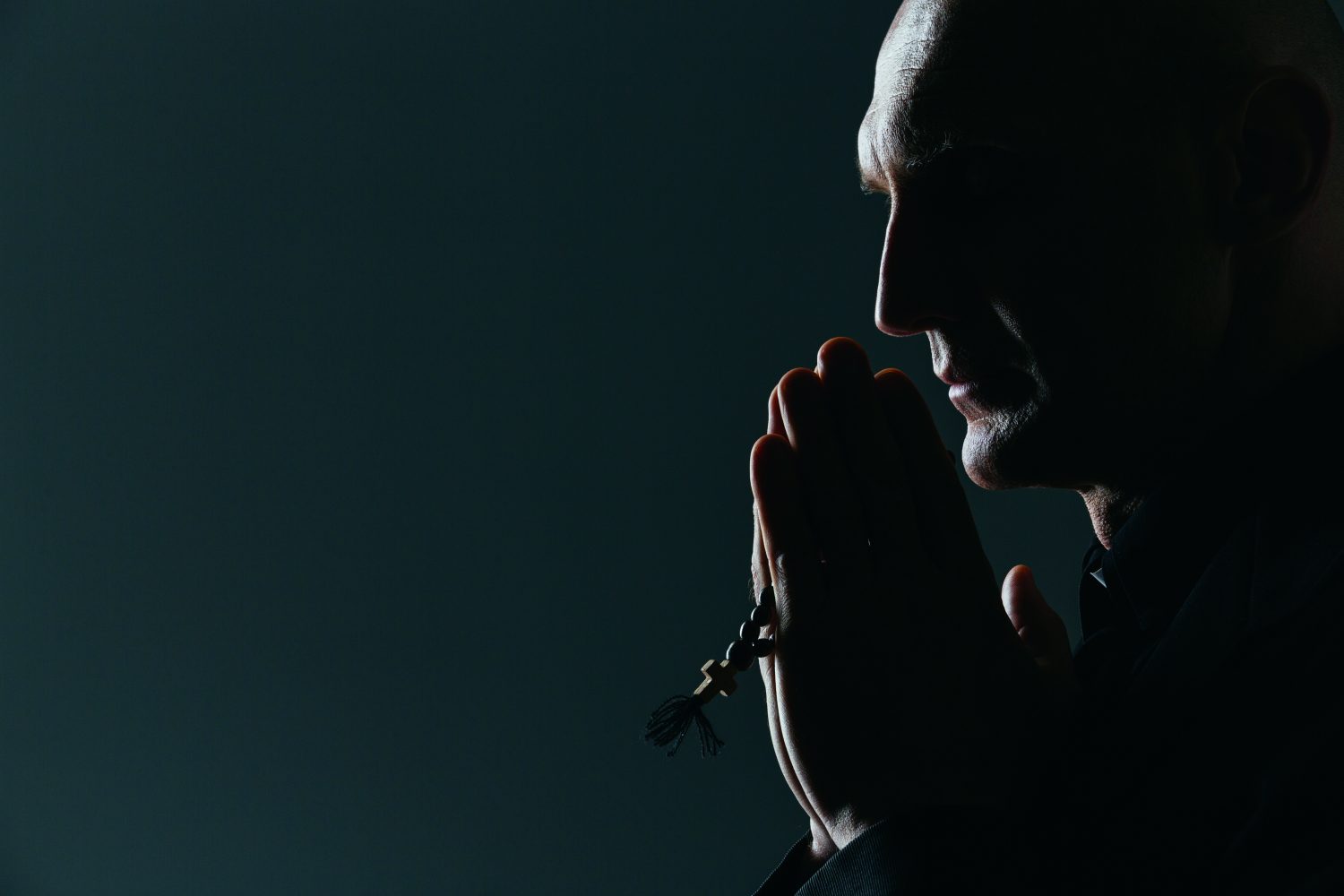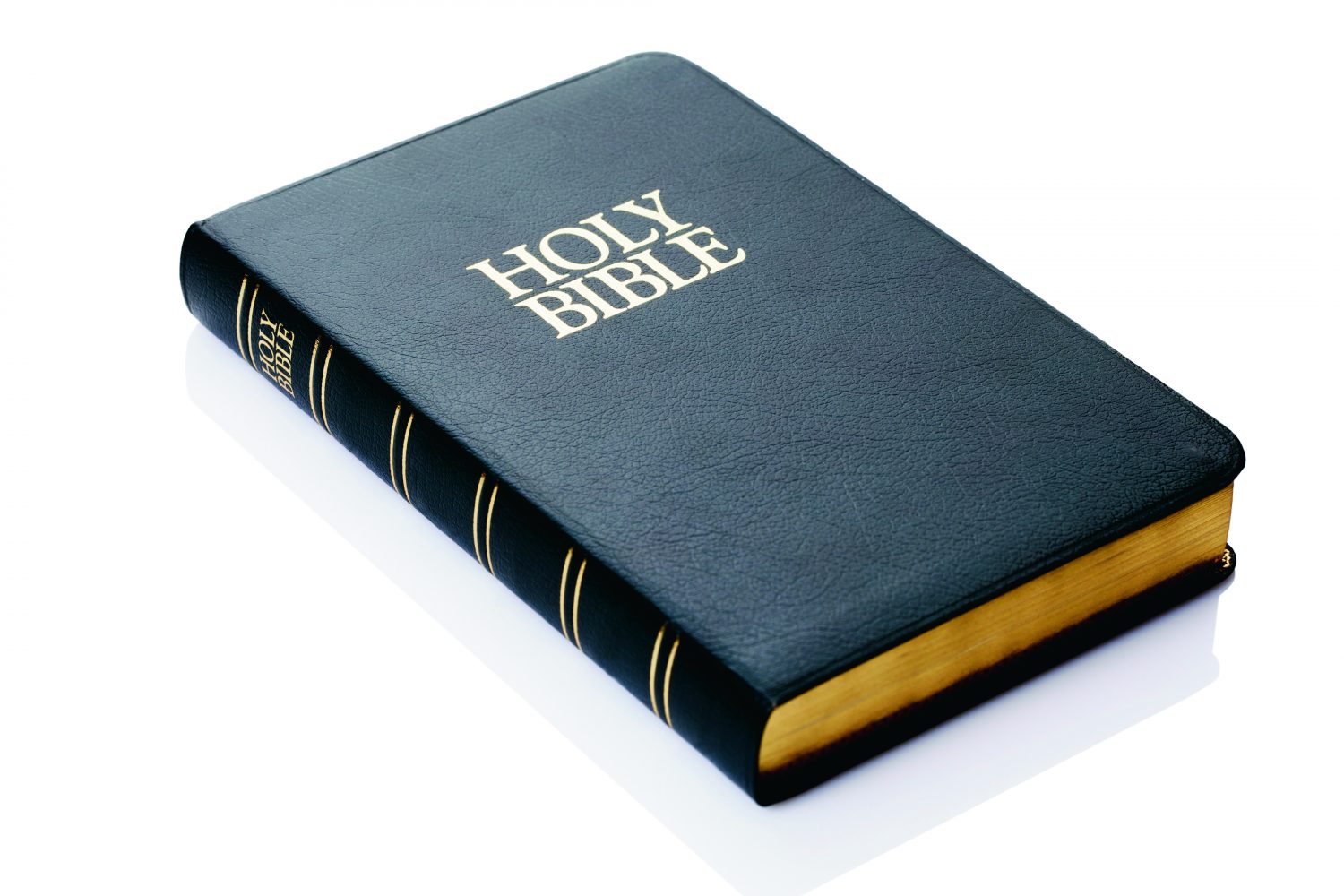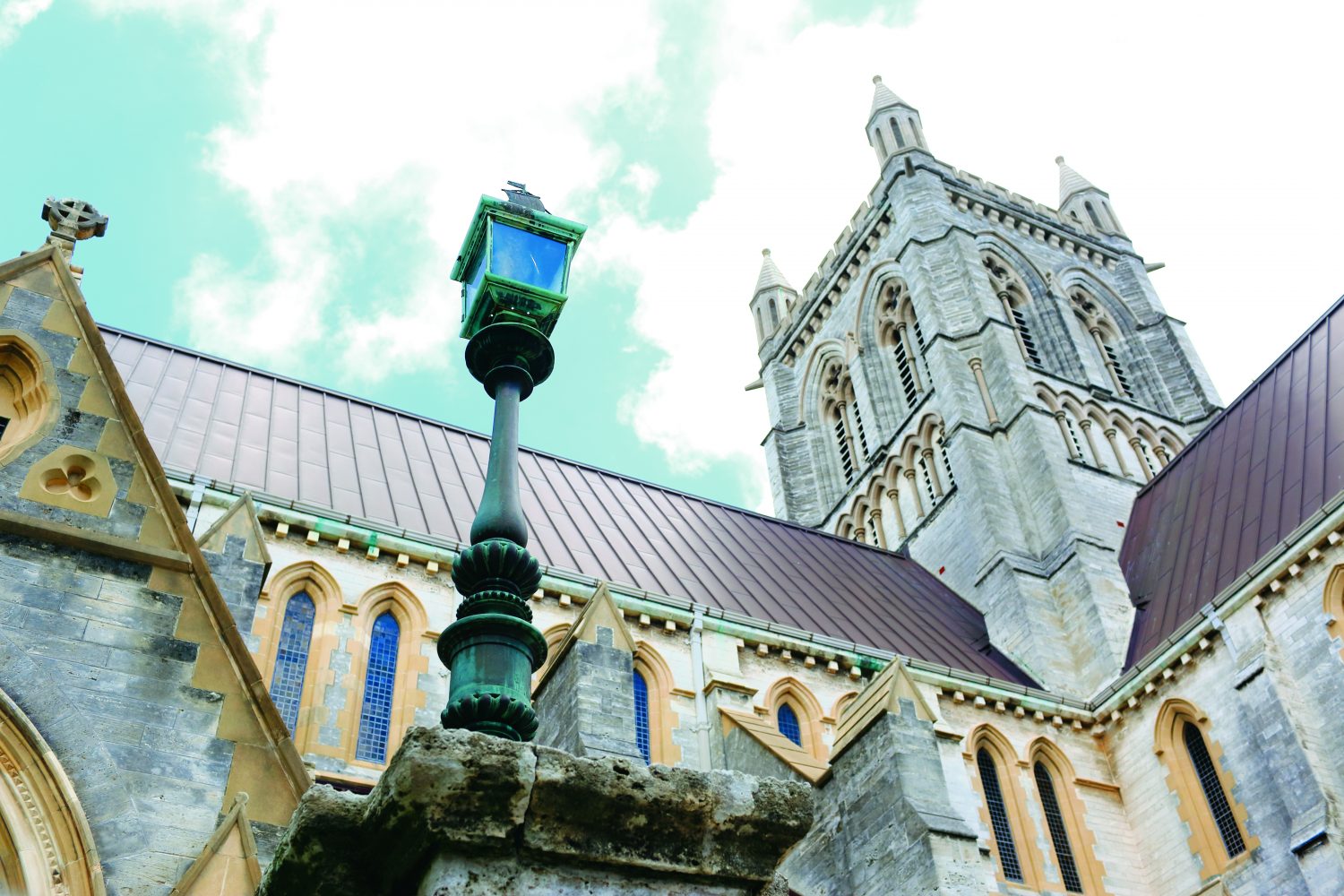The role religion plays in society is not always a straight forward one, and the uneasy relationship between those that believe and those that do not seems no more evident than at present where, anecdotally at least, the divide between the two appears to be growing on an almost daily basis.
A National Geographic study published this year found that atheism was the largest growing ‘faith group’ in the world. Secularism is on the rise to such an extent that Britain and Australia are soon likely to join France, the Netherlands, and New Zealand as the countries with larger populations of atheists than any religious groups.
Meanwhile, a survey by the Pew Research Center said that 3.1 per cent of the American population, up from 1.6 per cent, identified as atheist, although of that number two per cent still believed in a God or spiritual being. That position is largely incompatible with being an atheist, as the very definition of that belief is “a person who believes that God does not exist”.

Perhaps more telling, however, were the 8.8 per cent of those questioned in the Religious Landscape Study who said that religion was “not important” in their daily lives, up from the 6.3 per cent who said the same thing in the previous survey in 2007.
And yet, when disaster strikes as it did in the form of Hurricane Matthew in Haiti in October, or when a family is grieving for the death of a loved one, the call to “pray” for those in distress is almost universal.
“I would say that religion has always been important,” the Most Reverand Wiesław Spiewak, the Roman Catholic Bishop for Bermuda, said. “From the beginning there was always a kind of reverence to the being which was, somehow, above us. It could be nature, it could be different figures; it was changing, developing, depending on the culture of the people.
“I believe that the man and woman of the 21st century are not so “civilised” as they do not have God any more. It has not changed because it is something inside of us. It is true that looking at today’s so-called first world it could seem that religion is somehow losing its necessity, it’s losing its base.
“I’m usually not one for watching television. I was watching the situation in Baton Rouge in the United States where a Polish man had been killed, and in a society where we try and be politically correct, and try to avoid the topic of religion, even in our terminology, I heard the chief of police saying that in this moment ‘the only thing we can do is pray for the victims and their families’.
“We can try to be politically correct, but at a certain point I still believe there is something in us that pushes us to this spiritual and religious dimension. I believe it’s going to be still one of the characteristics of the human being.”
The importance of religion in that sense, in serving people’s spiritual and emotional wellbeing, is less contentious than the discord that occurs when some members of society object to religion playing a part in shaping the laws that govern them.
I wouldn’t say that religion has promoted the social progress of mankind. I say that it has been a detriment to the progress of civilization.
While certain behaviour is always likely to be viewed as morally reprehensible the attitudes of today say that homosexuality, for example, once punishable by prison or chemical castration, is no longer viewed in such a way in the Western world.
Similarly, being the child of an unwed mother used to carry a certain stigma. That has now changed, which might be considered fortunate for some. So too divorce, and to a certain extent adultery, neither of which are as frowned upon as they once were. For better or worse there are websites devoted to facilitating both.
Some might point to these things as clear evidence of religion’s waning influence on society, and bemoan the progress of civilisation. Others, such as Culbert Olson have taken a different view.
A fervent atheist before it was cool to be one, Olson refused to say “so help me God” when taking his oath of office as governor of California in 1939, and reportedly told Supreme Court Justice William H Waste, who oversaw the ceremony that “God couldn’t help me at all, and that there isn’t any such person”.
Olson’s politics were decidedly progressive for the time and he battled with the Roman Catholic Church on several occasions, as well as conservative Republicans, during his time as Governor.
“I wouldn’t say that religion has promoted the social progress of mankind,” Olson said in 1961. “I say that it has been a detriment to the progress of civilisation, and I would also say this: that the emancipation of the mind from religious superstition is as essential to the progress of civilisation as is emancipation from physical slavery.”
In reality, however, it is almost impossible to separate religion from society. Those that believe in some form of God are supposedly guided in their everyday lives by those beliefs, to suspend part of themselves while being part of society would be akin to asking Olson to open his mind to the possibility that there is a God.
“We are whole people, if we want the best of the community we want the whole person engaged in it. If part of my world view is a religious one, and that informs every decision I make, I can’t suspend all of that,” the Right Reverend Nicholas Dill, the Anglican Bishop of Bermuda, said.
“Atheism requires you to not believe and therefore are we all to become atheists in order to have a society that functions properly? No. We are a democracy, and one of the benefits of a democracy is that every voice, technically, is supposed to have some sort of impact.”
However, the strength of the religious voice, in Bermuda particularly, has often drowned out those of a non-religious persuasion, and there is a belief, fair or not, that the island’s politicians are unduly influenced by religion, of varying denominations, when it comes to shaping, and passing the island’s laws. Laws that govern a society of people who do not all believe the same thing.
The common complaint in this instance has often been that the Church wields too much power over the State and that there should be some separation between the two.
“Thomas Jefferson, when he was first espousing the idea [of the separation of Church and State] was speaking about it in a completely different way to the way it is now being applied,” Bishop Dill said.
“His view was the state should have nothing to say about the belief of the people, protecting the people from invasion by the state into their religious life. It wasn’t protecting the state from invasion by religion.”
Bishop Spiewak takes a different view, perhaps cognisant of the role the Roman Catholic Church as an institution has played in influencing society in the past.
“I don’t want that the institution of the church would become too influential on the life of society,” he said. “Religion should influence the human choices, but it should not be influencing the laws. The laws are to be made by the politicians, and it is up to them, they were elected, they are paid to do this.
“Religion can express its concern or vision, but it is not up to religion to decide about the laws of the country. I withdrew from the Preserve Marriage group because it became too political, this is not the way I would like to be involved with my community.”
You have people claiming ‘human rights’ over and against anything, but it always ends up being ‘my right’. It’s not about humanity as a whole.
Of course, the Church and religion are also two separate entities. The word religion comes from the Latin word religio, and is connected to a person’s own individual relationship with God. The rebelling against organised religion and the Church in modern society is an indictment on those institutions, not necessarily religion itself.
“We went through the postmodern stage and now we’re at the post-post-modern stage. In that whole thing, the rejection of authority figures, the rejection of those who seem to have a meta-narrative about the way the world is. I think there has been an erosion of confidence in institutions that have been around for a long time,” Bishop Dill said.
“They do a survey every year in England on who do you trust most, and people trust their hairdresser more than they trust their local politician, and probably now more than they trust their local priest. Which is a sad state of affairs, but there is no doubt that the Church is just a mess, but we should expect nothing less because it is just a collection of saints who are sinners — and sometimes it is hard to work out which is which.”
The irony is that churches of every denomination are active in their local communities doing things that Governments and ‘society’ do not.
“Churches are actively involved in the lives of people in the way a Government can never be involved,” Bishop Dill said. “They are there for the long haul. If the Church wasn’t doing what it was doing, who would feed the poor, who would visit those in hospital, who would be running the kids clubs that happen every week, who would go and see people in the old folk’s homes.
“Governments are happy when churches are doing the social action stuff, but are quiet on other things. Dom Helder Camara, a Brazilian archbishop, put it best: ‘When I give food to the poor, they call me a saint. When I ask why the poor have no food, they call me a communist’.”
Still, religion, and what it means to believe, the sacrifices required and demands made are not necessarily compatible with the morals of today, or the way people chose to live their lives.
Thatcher’s children in Britain, and the Regan generation in the United States were taught that the avaricious accumulation of wealth and material goods was to be worshipped above all else. As Michael Douglas’s character in Wall Street so eloquently put it, “greed is good”.
Much like peace and love defined the baby boomers, those three words in the Eighties have defined a generation who are the leaders of today and tomorrow.
“There will always be conflicts, but this, without being judgmental, is a bit of a phenomenon of our times, we became gods for ourselves, in our own world,” Bishop Spiewak said. “I, ego, became so important that, to this ego everyone and everything has somehow to be subjected, which is not helping; in any dimension.”
As religion carries over into society, so too does that selfishness. And the clash between the two was no more apparent than earlier this year in Bermuda, where an inability to listen to one another’s views created accusations of hate and bigotry on both sides.
“You have people claiming ‘human rights’ over and against anything, but it always ends up being ‘my right’. It’s not about humanity as a whole, it’s not about the society in which we live, it’s about what I want for me, and that’s my right,” Bishop Dill said.
“That’s not necessarily where the human rights have evolved from. They need to be true for everybody, they can’t just be true for one person and not for another. It’s a complicated situation, to come back to people and say ‘where does this come from, where’s it going, what is the natural outcome of what you’re thinking’ and to get people to think, but we don’t do much of that these days. And that’s the problem.”
It did not help in this situation that society in other parts of the world is ready to move on, and Bermuda as a melting pot of all different faiths, experiences, colours and creeds is still coming to terms with its place in the 21st century.
“It’s wonderful to have the mixture of ideas and not to be threatened by other people’s ways of thinking. The problem is we always want people like us, we feel safest and secure together. For those that are more conservative, these things are seen as a threat, and for those that have had this experience everything else is seen as ridiculous and old fashioned,” Bishop Dill said.
“We are very quick to label people who disagree with us as bigots, just because we don’t like what they have to say. And I think that is unfair because you have not stopped to find out why it is they think what they are saying. It is just easy to call someone a hater or a bigot because it means you are demonising them, but the whole process of communication is not about demonising someone, it is about humanising the person so you can look eye-to-eye and can understand each other.
“Nobody has a right to tell anybody who to love, but it is how is that love then protected.”
The lack of communication has not been helped by the misrepresentation of the Bible, a symptom of a “soundbite” generation who want everything laid out simply and in manageable pieces, while also conforming to their views of the world, whatever that may be.
“It is always a question of how do we want to interpret the words of Jesus. If we got to the point that we recognise Him as the Son of God, the Messiah, if he really comes from the real God, who is eternal, then His words are not temporal, they are eternal,” Bishop Spiewak said.
“There are too many words that were put into the mouth of Jesus by history, by the people in history. This is the difficulty that we are facing. The teaching of Jesus is mainly the revelation of the Father who wants the salvation of every human person, and the salvation of every human person is the most important thing for God, not the condemnation.
“The question then becomes what we humans do with the Word of God, the word of Jesus. And I believe it is here, quite often, we go too far.”
As Bishop Dill puts it, you can get the Bible to say “whatever you want, a cut and paste method of theology.
“You have to be careful with the way you use the Scriptures, and to have an understanding of the whole and where we fit in all of that.
“It is not a simple matter of that’s what it [the Bible] says so this is what it means. Although there are some places where it is quite straight forward and unambiguous, and I think it was Mark Twain that once said ‘it’s not the parts of scripture that I don’t understand that worry me, it’s the parts I do understand’.
“Sometimes we just want all the nice bits.”

